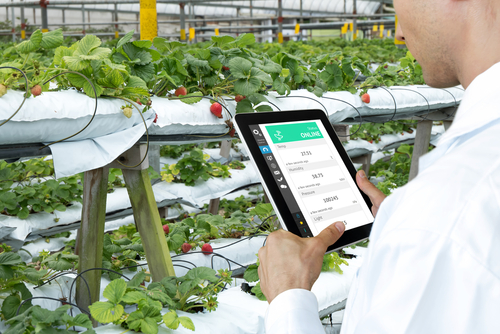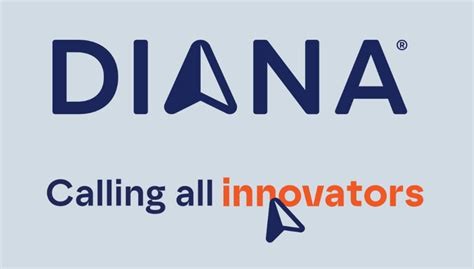New £10M Opportunity for UK Innovators
On 7th July 2025, Innovate UK launched an exciting new funding opportunity aimed at helping early-stage UK businesses bring their groundbreaking technologies closer to market. The Growth Catalyst Early Stage: New Innovators competition will provide up to £10 million in funding to UK-registered micro and small businesses that have not previously received Innovate UK project funding. This initiative is designed to help high-potential startups progress toward becoming high-growth, scalable businesses. Applications are open now and must be submitted by 11:00am on Wednesday, 6th August 2025.
The competition is part of Innovate UK's wider Growth Catalyst programme, which pairs grant support with targeted business development support delivered through Innovate UK’s Business Growth (formerly EDGE) and Business Connect teams. By combining funding and tailored mentorship, Innovate UK aims to help early-stage firms accelerate their innovation journeys, validate their commercial ideas, and lay the foundations for scale-up.
Each successful applicant can receive between £25,000 and £50,000, covering 100% of eligible project costs. This funding will be delivered through a phased payment model: 70% is issued at project start, 20% after evidence of spend, and the final 10% upon successful project completion and approval. Projects must start on 1st November 2025 and run for a duration of 3 to 6 months, with a strict end date of 30th April 2026.
To qualify, applicants must be UK-registered micro or small businesses (typically under 50 employees) that have not previously received Innovate UK funding for a project, though previous awards through initiatives such as Young Innovators, Catapults, or Business Growth are permitted. This competition is ideal for startups at a formative stage of development, seeking to demonstrate proof of concept or early commercial traction.
The scope of the competition focuses on innovations that align with at least one of the UK government’s five critical technologies:
• Artificial Intelligence (AI) and Machine Learning (ML) – including new AI tools or innovations in trusted and responsible AI.
• Semiconductors – such as UK-based advancements in semiconductor design, materials, or manufacturing processes.
• Future Telecommunications and Advanced Connectivity – including technologies like photonics, open and interoperable networks, and cyber-secure or quantum-safe communications.
• Quantum Technologies – spanning scalable quantum computing platforms, quantum-classical hybrid algorithms, and applied quantum systems.
• Engineering Biology – involving synthetic biology, bioengineering tools, and novel sustainable biomanufacturing approaches.
Eligible projects must be business-led, UK-focused, and capable of demonstrating clear innovation, commercial potential, and societal or economic benefit. Projects must deliver more than academic research; Innovate UK is looking for solutions that show promise for commercial application and real-world impact.
Applications will be assessed across four core areas, each weighted equally:
1. The Idea – how innovative the concept is, the problem it solves, its market potential, affordability, and appeal to investors or customers.
2. Impact and Added Value – including how the project will benefit the applicant’s business, the UK economy, society or the environment, and why public funding is necessary.
3. Business Resources and Capabilities – an evaluation of the team’s ability to deliver, routes to market, and how the business addresses equality, diversity and inclusion.
4. Work Packages and Costs – clarity and justification of costs, project milestones, risk assessment, and freedom to operate from an IP perspective.
Applications are submitted online and must also complete non-scored sections relating to financial assistance declarations, compliance with animal welfare policies, export controls, and national security considerations. Subcontracting is allowed within the UK and internationally, but overseas suppliers must be justified with evidence that UK alternatives were explored.
Key dates for the competition are as follows:
• 7th July 2025 – Competition opens
• 8th July 2025 – Pre-recorded briefing available
• 6th August 2025 (11:00am) – Deadline for submissions
• 2nd September 2025 – Applicants notified of outcomes
• 1st November 2025 – Project start date
One important condition is that applicants can only submit one application to this competition. If a business submits more than one proposal, only the first will be considered. Additionally, the funding is classed as Minimal Financial Assistance (MFA), meaning a business must not have received more than £315,000 in public funding over the past three financial years.
This competition forms part of a broader government effort to catalyse innovation in sectors seen as essential to future economic growth and national resilience. By focusing on the five critical technologies (AI, semiconductors, connectivity, quantum, and engineering biology) the UK aims to secure global leadership in emerging markets.
Applicants are strongly encouraged to align their projects closely with one or more of these strategic areas and to clearly demonstrate how the funding will help them make significant progress toward commercialisation. Innovate UK is particularly interested in projects that can show:
• A clear route to market or customer validation
• The potential to unlock future private investment
• Societal or environmental benefit
• A strong case for public support to de-risk early innovation
Businesses interested in applying should act quickly, as the deadline is fast approaching. With only one application permitted per business and a strong focus on quality, clarity and strategic alignment, early preparation and careful planning are essential to success. For a free consultation to discuss your project idea, contact RedKnight today.
2026 European Prize for Women Innovators Now Open
Empowering Europe’s Female Changemakers
In an era rapidly defined by technological breakthroughs and global challenges, it’s crucial to spotlight those driving real impact. The European Prize for Women Innovators, a collaborative initiative by the European Innovation Council (EIC) and the European Institute of Innovation and Technology (EIT), does exactly that—shining a spotlight on women founders and co-founders across Europe whose work is reshaping health, sustainability, digital economies, and more.
What is the Prize?
Originally launched in 2011 as the “European Woman Innovator of the Year,” this prize has evolved into a multi-category recognition by 2023, now awarding nine prizes annually. The categories include:
1. EIC Women Innovators – three main awards of €100 000, €70 000, and €50 000 for established women entrepreneurs.
2. EIC Rising Innovators – aimed at promising innovators under 35, with prizes of €50 000, €30 000, and €20 000.
3. EIT Women Leadership Award – recognizing exceptional leaders within the EIT ecosystem, also offering €50 000, €30 000, and €20 000.
Launched on 17th June 2025, the 2026 edition is now accepting submissions, with a deadline of 25th September 2025 at 17:00 CEST.
Who Can Apply?
To be eligible, applicants must be:
• A natural person identifying as a woman.
• The founder or co-founder of a company or organisation legally established in an EU Member State (including overseas territories) or Horizon Europe–associated country.
• Their company must have been registered at least two years prior to 1st January 2022.
• Women under 35 can apply to the Rising Innovators category; there’s no age limit to the other categories.
Applicants cannot apply to more than one category or have previously won an EU/Euratom prize for the same achievement.
Award Criteria
Evaluations are based on three pillars:
1. Breakthrough Innovation – evidence of deep-tech or STEM-based disruptive innovation.
2. Impact – tangible benefits for people or the planet.
3. Inspiration – leadership that uplifts other women and girls.
Why It Matters
Despite progress, women remain underrepresented in tech and innovation, a gap only widened by systemic barriers in funding and visibility. This prize tackles that head-on, offering substantial financial support, visibility, and a network of peer inspiration. With a top prize of €100 000, alongside runner-up prizes reaching up to €70 000, plus broad media exposure, awardees gain momentum that can supercharge both commercial success and societal impact.
Real-World Impact: Stories from 2025 Winners
Insight comes alive in the stories of last year’s awardees, including those profiled by Sifted and other innovation press:
Women Innovators Award – Agnès Arbat (Oxolife, Spain)
Agnès Arbat co-founded Oxolife to revolutionize fertility treatment. Their flagship drug, OXO 001, significantly improves embryo implantation, boosting live birth rates by about 7% (148 babies born during Phase II trials). Backed by EIT Health and other grants, they’re now advancing towards Phase II trials for PCOS patients in 2026. “All the funds…specifically regarding EIT Health…helped us design the Phase II trial,” says Arbat.
Her research directly addresses infertility, a key health challenge, and showcases women’s central role in biotech innovation.
Rising Innovators – Camille Bouget (Scienta Lab, France)
Under 35, Camille Bouget co-founded Scienta Lab, developing EVA, an AI platform predicting drug efficacy for immuno-inflammatory diseases. With €4.4 million raised, EVA evaluates treatments across 15 conditions, reducing risk early in drug development.
“We can help pave the way for a more inclusive innovation ecosystem…,” Bouget reflects.
She demonstrates how youthful insight, when paired with deep industry know-how, she came from Sanofi and Galápagos, can redefine healthcare innovation.
EIT Women Leadership – Débora Campos (AgroGrIN Tech, Portugal)
Débora Campos founded AgroGrIN Tech to convert industrial fruit waste into functional food ingredients. Following a PhD project, her business now pilots clean-label solutions for food manufacturers, merging sustainability with profitability. “That ecosystem helped us sharpen our business model… accelerate our go-to market strategy,” she says. Her win signals how circular economy innovation can scale, and how support from entities like EIT Food can be transformative.
Support Ecosystem & Evaluation Process
Eligible candidates choose one category and apply via the European Commission’s Funding & Tender portal, where detailed contest rules and submission guides are available.
Applications follow a strict structure:
• Form A (admin) and Form B (technical, max 15 pages)
• Supporting annexes
• A 90-second inspirational video.
A jury of independent experts selects winners based on the three award criteria, ensuring transparency and meritocracy.
How to Apply: Key Dates & Steps
• Launched: 17th June 2025
• Deadline: 25th September 2025 at 17:00 CEST
• Evaluation: September 2025–January 2026
• Awards Ceremony: January–March 2026
Why You Should Consider Applying
1. Boost to innovation – The prize money injects growth capital into R&D, scaling, or market entry.
2. Unmatched visibility – EU-level recognition, featured at events like the EIC Summit.
3. Peer learning – Join an elite community of women leaders.
4. Credibility – Builds trust with investors and strategic partners.
5. Inspiration multiplier – Awardees become role models for women and girls in STEM.
Broader Legacy & Future Outlook
Since its inception, this prize has recognised dozens of women across Europe and associated countries, for example, winners in 2022 included Rocío Arroyo (Spain), Ciara Clancy (Ireland), and others. These laureates now lead in sectors ranging from biotech to sustainable energy.
Today’s expansion, with more categories, bigger prizes, and open eligibility across EU and associated nations, demonstrates strong commitment to diversity in innovation. By 2026, the award infrastructure will include support webinars, mentorship opportunities, and more visible storytelling.
British Business Bank Announces £6.6 bn Boost for UK Innovation
The British Business Bank (BBB), the UK government’s economic development bank headquartered in Sheffield, has been allocated a fresh £6.6 billion in capital as part of the government’s 2025 Spending Review and its new Modern Industrial Strategy. This initiative aims to increase funding capacity from £15.6 billion to £25.6 billion, enabling approximately £2.5 billion in annual investments—an increase of two-thirds.
Two-pronged Investment Focus
The announced capital is structured into two key strands:
- £4 billion - Industrial Strategy Growth Capital
- Targeted investment in eight strategic, growth-driving sectors: advanced manufacturing, clean energy, creative industries, defence, digital/tech, financial services, life sciences, and professional/business services.
- Aims to leverage another £12 billion of private capital, bringing the total to roughly £16 billion over four years.
- Designed to bridge scale-up finance gaps, including direct investments of up to £60 million in high-potential companies, anchoring them in the UK.
- Will also support venture ecosystems by backing specialist and emerging fund managers.
- £2.6 billion - Regional and Inclusive Entrepreneurs Fund
- Focus on "anyone, anywhere", supporting entrepreneurs across UK regions, especially in high-growth innovation clusters.
- Includes new £350 million Nations & Regions Investment Funds for East and Southeast England, plus £100 million boosting existing cluster investments.
- Expansion of the Regional Angels Programme and establishing a new Investor Pathway Capital initiative to nurture diverse and emerging fund managers.
Strategic Goals and Economic Impact
These initiatives are designed to:
- Fill critical gaps in startup and scale-up finance across regions.
- Crowd-in private and institutional investment, with an expected £30 billion of total economic impact (GVA).
- Support the growth and retention of high-potential companies across key UK sectors.
- Develop a resilient finance ecosystem by supporting diverse and specialist managers.
BBB CEO Louis Taylor emphasised the bank’s catalytic role: “Using our market expertise and reach, we have a critical role to play in supporting smaller businesses… no matter what their background or where they are located”.
Building on Momentum
This move builds on BBB's decade-long track record: over £17 billion delivered to nearly 64,000 small businesses via core programmes, plus oversight of £80 billion in COVID-era finance support. It positions the bank to anchor future "star" businesses and rebalance regional inequalities.
What This Means for UK SMEs & Innovators
- Access to larger, tailored equity and debt capital, especially for scale‑ups and deep‑tech firms.
- Enhanced regional funding options, reducing dependence on London‑centric finance.
- Backing for diverse fund managers, improving chances for under-represented entrepreneurs.
- A stable, long-term investment framework built to withstand economic cycles.
Eurostars Call 9 Opens July 2025
Funding for Internationally Collaborating Innovative SMEs
The Eurostars programme, jointly managed by EUREKA and the European Commission, is one of Europe’s most SME-friendly funding schemes for collaborative R&D. It is designed to support R&D-performing SMEs and their partners in developing innovative, market-ready products, services, or processes through international collaboration. The next funding opportunity—Eurostars 3, Call 9—opens on 4 July 2025 and will close on 4 September 2025 at 14:00 CEST.
This call is part of the Horizon Europe Partnership on Innovative SMEs and is aimed at small consortia of organisations from different participating countries. Its objective is clear: to support innovative SMEs in executing transnational R&D projects with high market potential and commercial ambition.
Key Dates and Timeline
Eurostars Call 9 provides a two-month application window, with a streamlined evaluation and decision-making process.
Important dates include:
- Call opens: 4th July 2025
- Deadline for submission: 4th September 2025 at 14:00 (CEST)
- Evaluation results: Expected by end of November or early December 2025
- Project start dates: Typically within 6 months of submission, subject to national processes
Applicants are advised to begin early and consult their national funding bodies to align with country-specific rules and requirements.
Who Can Apply?
Eurostars is open to SMEs leading international R&D collaborations, with a particular focus on innovation and commercialisation. Projects must be led by an R&D-performing SME and involve partners from at least two participating Eurostars countries.
Minimum eligibility criteria:
- The project consortium must include at least two independent entities from two different Eurostars countries (UK is included).
- The lead applicant must be an innovative SME from a Eurostars country.
- SMEs must carry at least 50% of the total project costs (excluding subcontracting).
- No participant or country can contribute more than 70% of the total budget.
- Projects must have a maximum duration of 36 months.
- Results should be targeted for civil applications only.
Eurostars currently includes 37 countries, including EU member states, the UK, Norway, Turkey, Israel, Switzerland, and several others. The programme’s flexibility allows SMEs to partner with universities, large companies, and research centres, if the SME remains the project lead.
Funding Rules and Budget
Funding through Eurostars is provided on a decentralised basis, meaning that each participating country funds its own organisations according to national rules. This means that grant rates, eligible costs, and submission procedures can vary significantly between countries.
Typical funding characteristics:
- SMEs can receive between 40–80% of eligible costs, depending on national rules (60% in the UK).
- Universities and research institutes are often eligible for funding, but this varies (not eligible in the UK).
- Maximum grant sizes also vary; some countries cap funding per partner or per project (€600,000 total cost maximum for UK SMEs).
Applicants must contact their national funding agency to confirm their eligibility and understand any specific requirements before submitting.
Application and Evaluation Process
The Eurostars application process is fully online via the Eureka Project Management Platform. The system opens on 4th July 2025, and proposals must be submitted by 4th September 2025 at 14:00 CEST.
The submission and evaluation process includes:
- Online application: Including technical annex, budget, partner declarations, and Gantt chart.
- Eligibility checks: Ensuring all criteria are met, conducted immediately after the deadline.
- Technical assessment: Carried out by two independent international experts.
- Centralised evaluation: Projects are ranked by an Independent Evaluation Panel.
- Ethics review: Conducted for projects involving sensitive data, human subjects, or ethical risks.
- Funding decisions: Made by national funding bodies, typically 6–8 weeks after the ranking list is finalised.
A clear strength of Eurostars is its centralised evaluation with decentralised funding, enabling high-quality cross-border projects while preserving national control over budgets.
Why Apply: Key Benefits of Eurostars
Eurostars stands out for its accessibility, flexibility, and proven impact on SME growth. It is particularly attractive for SMEs that are too small for direct EU programmes like EIC Accelerator or Horizon Europe collaborative calls, yet still need substantial support to scale innovation internationally.
Top reasons to apply:
- High success rate: ~29%, significantly higher than most EU R&D schemes.
- Bottom-up approach: No fixed themes - applicants define their own project scope.
- Quick feedback: Results delivered within 3 months of submission.
- Flexible funding: Each partner receives funds through its own national agency.
- Strong impact: On average, participating SMEs increase their turnover by 15% and enter new international markets.
- Small consortia allowed: Ideal for agile, focused R&D collaborations (2–4 partners).
Preparing a Competitive Application
To boost your chances of success, preparation is key. Applicants are encouraged to attend webinars and national information sessions, some of which will take place in early July 2025.
Tips for success:
- Engage your national contact point early to confirm eligibility.
- Build a balanced, complementary consortium with clear roles and shared risk.
- Ensure your project has a clear route to market, including a commercialisation plan.
- Emphasise your project’s technical excellence, commercial potential, and societal impact.
- Allow time for internal review, document collection, and Gantt chart planning.
- Use professional support services where necessary, several consultancies across Europe specialise in Eurostars bid writing.
Next Steps: What Should You Do Now?
If you’re considering applying to Eurostars Call 9, here’s what you should do next:
- Check eligibility with your national funding body
- Identify potential partners in other Eurostars countries
- Mark your calendar for the 4th July 2025 opening
- Start drafting your proposal early
- Attend a webinar for application tips and evaluation insights
- Register on the Eurostars portal: www.myeurekaproject.org
For a free consultation to discuss your project in more detail, contact RedKnight today.
Unlocking Agri-Tech Innovation in Wales
New Innovate UK Launchpad Competition Offers £2.7M Funding Opportunity
Innovate UK has announced a new funding competition designed to boost the agri-tech and food technology sectors across Mid and North Wales. Launching under the Innovate UK Launchpad programme, this targeted opportunity will provide up to £2.7 million in grant funding to collaborative R&D projects that are rooted in the region but have the ambition to scale nationally or internationally. The competition opens for applications on 30th June 2025 and closes at 11:00 am on 20th August 2025.
This Launchpad competition is part of a broader government strategy to strengthen regional innovation clusters by building place-based capacity and encouraging collaboration between businesses, research centres, and public sector bodies. Mid and North Wales have been identified as areas of strategic potential, with rich natural resources, strong agricultural heritage, and a growing network of innovation hubs such as AberInnovation, M-SParc, Ambition North Wales, and Growing Mid Wales. Innovate UK aims to catalyse activity within this cluster by funding projects that can solve local challenges and contribute to the UK’s net zero, food security, and rural growth agendas.
To be eligible, projects must be led by a UK-registered business of any size and must include at least one UK-registered micro, small or medium-sized enterprise (SME). Importantly, only collaborative applications will be accepted, individual companies applying alone will not be eligible. The total grant funding requested must be between £150,000 and £500,000, and all project activities must be carried out within the UK. However, applicants must clearly demonstrate how the work will contribute to the Mid and North Wales cluster during the funded project and in the longer term. Proposals will be assessed on their technical merit, as well as on their ability to drive local impact, support regional growth, and create lasting innovation infrastructure.
The competition is open to a wide range of innovations in agriculture and food technology. This includes, but is not limited to, smart farming solutions, digital agriculture platforms, crop monitoring and optimisation technologies, alternative proteins, food waste reduction systems, and packaging innovations. Projects must be relevant to the needs of Mid and North Wales and contribute meaningfully to the local economy and innovation ecosystem. However, they should also show scalability, either by having the potential to be adopted across the UK or by being export-ready for international markets. This dual emphasis on local embedding and global outlook is a core pillar of the Launchpad approach.
Crucially, Innovate UK wants to see projects that will leave a lasting legacy in the region. Successful applicants must articulate how they will strengthen the Mid and North Wales cluster beyond the life of the grant. This might include creating new partnerships with local organisations, setting up new facilities or capabilities, enhancing regional supply chains, or developing specialist skills within the local workforce. Proposals that do not convincingly demonstrate ongoing engagement with the cluster are unlikely to succeed, even if they are strong on technical innovation.
Applicants will be evaluated across several criteria, including the strength of the innovation, market demand, potential for commercialisation, and value for money. Equally important will be the team’s capacity to deliver and the clarity of the project plan. The assessment process will also consider how well the project aligns with local priorities, and how it complements existing initiatives in the region. Innovate UK is seeking a balanced portfolio of projects that will collectively enhance the economic and innovation potential of Mid and North Wales.
While this is a UK-wide competition, it is deeply rooted in Welsh regional priorities. Local authorities and economic development bodies are working closely with Innovate UK to support applicants, and potential bidders are encouraged to engage early with organisations such as AberInnovation, M-SParc, Ambition North Wales, and Growing Mid Wales. These regional cluster anchors can offer valuable insights, introductions to collaborators, and guidance on aligning proposals with local strategic goals. A webinar briefing will also be held shortly after the competition opens to provide more detail on the application process, scope, and assessment criteria.
The timing of this competition is significant. The UK government is investing heavily in food system resilience, climate-smart agriculture, and place-based innovation, and this Launchpad initiative is part of a coordinated push to unlock economic growth in rural and semi-rural areas. It also complements the recent £50 million boost to sustainable food production grants announced in May 2025. For innovators working on next-generation agricultural technologies, automation, or food sustainability solutions, the Mid and North Wales Launchpad offers an unparalleled opportunity to access funding, build regional networks, and accelerate impact.
Applying to the competition requires careful preparation. Prospective applicants should begin by forming a strong consortium that includes all required partners, particularly at least one SME. They should then clearly define how their project will support the Mid and North Wales cluster and ensure that their innovation aligns with the regional agri-tech and food tech priorities. The proposal should include a well-articulated delivery plan, commercialisation strategy, and longer-term vision for sustaining innovation in the region.
RedKnight was successful in the previous Agri-tech Launchpad, and as a Wales-based organisation, is eager to support more Welsh organisations in accessing this funding. For a free consultation, contact RedKnight today.
UK Agri-Tech SMEs Target Saudi Growth
UK SMEs Tap into Saudi Arabia’s Agri Tech Opportunity via Innovate UK’s GBIP
As agri tech innovation reshapes modern farming across the globe, Innovate UK is inviting UK-based small and medium enterprises (SMEs) to compete for a coveted spot in its Global Business Innovation Programme (GBIP): Agri Tech, Saudi Arabia. Registration opened on 16th June 2025 and closes on 27th July 2025, offering up to 15 ambitious businesses an exceptional opportunity to accelerate their international expansion.
Who Should Apply?
Eligibility is open to UK-based, innovation-led companies with fewer than 250 employees. Each application must be led by a senior decision-maker, such as a CEO or founder, who is prepared to fully commit to all three phases of the programme.
Importantly, participants must attend a two-day UK-based ‘Get ready’ workshop, a week-long innovation visit to Saudi Arabia, and a follow-up ‘Exploit the opportunity’ workshop post-visit. Businesses who previously participated in a GBIP for the same market/sector must demonstrate measurable impact from prior rounds and outline how this particular programme offers fresh value.
Programme Timeline & Structure
Innovate UK has structured the programme within a 9–12 month window, starting with preparatory activity and culminating in strategy planning:
• Get ready workshop: 15th–16th September 2025 (tbc)
• On-site innovation visit, including a stop at the Saudi Agriculture Conference in Riyadh: 17th-24th October 2025
• Exploit the opportunity workshop: 13 January 2026 (tbc).
Additionally, a global insight and briefing webinar is scheduled for 3rd July 2025, providing potential applicants with essential guidance on eligibility, evaluation, and the Saudi agri tech ecosystem.
What’s Funded?
Innovate UK will cover flights, accommodation, in-market travel, and conference fees for one senior representative per company. While most costs are covered, a refundable commitment fee of £1,000 is required upon acceptance, refunded upon completion of all programme phases and deliverables.
Why Saudi Arabia?
Under its Vision 2030 plan, Saudi Arabia is rapidly modernising its economy, with agriculture and food security now taking centre stage. Despite the harsh desert environment and scarce freshwater resources, agriculture contributes around 4.3% to KSA’s non oil GDP, employing over 350,000 people.
Recent UK–KSA developments, notably the March 2024 science and technology MoU, have set the stage for enhanced R&D collaboration, aligned with critical needs in food, water, clean energy. The KSA government is investing in:
• Controlled-environment agriculture (CEA)
• Precision breeding and agriculture
• Precision livestock technologies
• Aquaculture
• Food waste valorisation and circular economy solutions.
These focal areas constitute the thematic pillars for the GBIP cohort.
Scope & Focus Areas
Innovate UK is seeking innovative solutions across several cutting-edge categories:
• Aquaculture: including health diagnostics and AI-enhanced feeding systems
• CEA & precision agriculture: robotics, sensor networks, drip irrigation, integrated pest management
• Livestock tech: health monitoring, fertility management in dairy and poultry
• Circular-economy systems: turning agricultural or food waste into high-value products.
These diverse themes reflect the breadth of KSA's ambitions and provide rich potential for UK SMEs to add value.
What Participants Gain
Accepted businesses can expect to unlock multifaceted benefits through the GBIP:
1. Market knowledge & SME profiling: DNAs from in-market visits and networking.
2. High-level introductions: tailored connections to government, R&D, and industry leaders.
3. Partnership opportunities: enabling joint R&D projects and bi-lateral funding calls.
4. Value proposition refinement: through expert coaching and peer exchange.
5. Pipeline building: with incubation support via a dedicated Innovation and Growth Specialist.
Combine these with direct exposure at the Saudi Agriculture Conference, and participants are well-positioned to forge lasting commercial and research partnerships.
€100k Dual-Use Tech Challenge Across 10 Critical Domains
On 2nd June 2025, NATO’s Defence Innovation Accelerator for the North Atlantic (DIANA) unveiled an ambitious set of ten new technology challenges, marking a major expansion of its mission to identify and fast track dual use deep tech across the Alliance. Running until 12:00 UTC on 11th July 2025, this competition offers €100,000 in funding and access to a six month accelerator starting January 2026, with top performers eligible for up to an additional €300,000 in the next programme phase.
What is DIANA?
Established in June 2021 and operational since June 2023, DIANA is NATO’s first innovation accelerator body dedicated to dual use deep technologies, solutions that bridge civilian and military applications. Operating out of regional locations in London, Tallinn, and Halifax, it harnesses a continent wide network of 200+ accelerator sites and test facilities across Europe and North America.
Managed by Professor Deeph Chana, DIANA runs a competitive, multi phase model: public challenge calls → rapid non dilutive grants → a structured Phase 1 accelerator → rigorous down select to Phase 2 → real world testing, adaptation, and adoption by NATO and member states.
It also feeds promising technologies into the €1 billion NATO Innovation Fund, launched in June 2022 to scale dual use deep tech innovation.
The 2025 Challenges
The ten focus areas reflect NATO’s evolving defence and resilience needs:
1. Energy & Power
2. Advanced Communication Technologies
3. Contested Electromagnetic Environments
4. Human Resilience & Biotechnologies
5. Critical Infrastructure & Logistics
6. Operations in Extreme Environments
7. Maritime Operations
8. Resilient Space Operations
9. Autonomy & Unmanned Systems
10. Data Assisted Decision Making
Each challenge invites innovators to address pressing capability gaps, ranging from AI enabled decision tools to resilient comms systems and advanced biotech for personnel.
Support and Selection Process
• Phase 1: €100,000 in contractual funding, six month accelerator, access to test centres, mentor network, and industry end user engagement.
• Phase 2 (down selected): Additional funding, deeper integration, field testing, and potential procurement opportunities.
Since its pilot in 2023, DIANA has supported:
• 44 startups across three challenges (energy resilience, sensing & surveillance, secure information sharing), selected from 1,300+ proposals.
• Over 70 companies awarded for the 2025 accelerator, spread across 20 NATO countries, covering similar deep tech domains.
Past participants include innovators in quantum cryptography, secure messaging, and cyber resilience, such as Hushmesh, Goldilock, and LevelQuantum, which received €100,000 and access to NATO test labs.
Spotlight: The Arctic Innovation Mobilisation
In May 2025, DIANA ran a focused Arctic Innovation Mobilisation (AIM) competition in collaboration with Norway, targeting solutions for extreme cold and remote conditions. Five winners, including US, Norwegian, and Canadian firms, received up to €50,000 each for innovations spanning PNT resilience, power systems, UAS charging, and avalanche safety. The initiative emphasises DIANA’s agility in responding to regional and environmental security demands.
Why It Matters
DIANA represents a significant shift in NATO's approach:
• Breaking the ‘washing machine’ procurement model by focusing on effect based challenges, not preconceived solutions.
• Accelerating impact: swift funding, end user feedback loops, and streamlined adoption pathways.
• Embracing dual use innovation, bridging civilian technology with military needs.
• Leveraging collective scale: regionally rich, multi national, resourced innovation hubs.
These new 2025 challenges reveal NATO’s readiness to tackle next generation threats, whether cyber electromagnetic, space based, environmental, or biologically oriented, through tech-powered resilience.
How to Participate
• Innovators (startups, SMEs, researchers) have until 12:00 UTC, 11th July 2025 to apply via the DIANA website.
• Proposals must clearly address one of the ten challenge areas with strong evidence of novelty, feasibility, dual use potential, and defence alignment.
• No equity is taken; grant-based support ensures innovators retain ownership.
What to Watch For
• Announcement of the 2026 cohort, expected early 2026.
• Success stories from Phase 1 projects that transition to practical adoption.
• NATO’s Innovation Fund investments in standout DIANA participants.
• Continued regional initiatives like AIM, reflecting NATO’s flexibility.
Interested in learning more or applying? Contact RedKnight today.
UK Unveils £86 Billion Boost to Science & Tech
The UK government has pledged a transformative £86 billion to bolster science, research, and technology over the next four years, reaching £22.5 billion annually by 2029/30. The announcement, part of a broader “Plan for Change,” was made ahead of the 2025 Spending Review and represents a major leap toward establishing the UK as a global leader in innovation.
Key highlights:
• £86 billion to fund everything from new drug treatments and longer lasting batteries to new AI breakthroughs to generate billions for the UK economy and drive the UK government’s “Plan for Change”.
• includes up to £500 million for regions across the UK, with local leaders part of decision making.
• announcement comes ahead of the Spending Review, where the Chancellor will make clear that investing in Britain’s renewal will deliver change for working people and their communities.
Key Objectives
Fuel economic growth: Every £1 of R&D spending is expected to generate up to £7 in economic benefits, stimulate private investment, and support around 3 million jobs.
Boost regional innovation: A dedicated £500 million Local Innovation Partnerships Fund will empower local leaders to direct investment toward their region’s strengths.
The government’s regional focus acknowledges that innovation is strongest when aligned with local ecosystems with targeted investment across sectors such as:
• Liverpool will leverage its life-sciences hub to accelerate new drug development.
• South Wales - home to the UK’s largest semiconductor cluster, will receive funding to develop chips for mobile devices and electric vehicles.
• Northern Ireland stands to gain through enhanced defence technology capabilities.
Each of the seven Mayoral Strategic Authorities in England, including Greater Manchester, West Midlands, South Yorkshire, West Yorkshire, Liverpool City Region, Northeast, and Greater London will receive at least £30 million. Devolved governments in Scotland, Wales, and Northern Ireland, as well as other UK areas, may compete for additional funds.
Spotlight on Local Innovation Partnerships
This funding builds on successful pilots like Greater Manchester’s AI-powered diagnostic accelerator, which speeds up and reduces the cost of detecting liver, heart, and lung disease, and the West Midlands’ Moonbility platform, using AI to model transport disruption and assist passengers. The Local Innovation Partnerships Fund marks an enduring push toward democratising access to R&D.
Chancellor Rachel Reeves described the initiative as critical to “investing in Britain’s renewal to create jobs, protect our security against foreign threats, and make working families better off”. Science and Technology Secretary, Peter Kyle, emphasised that R&D underpins breakthroughs, from longer-living technologies to climate-fighting innovations, and aims to enhance quality of life throughout the UK.
Policy Alignment & Spending Review Context
The infusion is part of a larger Spending Review package: the Chancellor will unveil £113 billion in new capital investment in housing, transport, and energy, following her modifications to debt rules. These investments align with the government’s shift to empower regional spending via reforms to the Treasury’s “Green Book,” facilitating more strategic, place-based investment.
Universities UK welcomed the announcement. CEO Vivienne Stern praised the plan as “a smart investment” with the potential to spur long‑term growth nationwide:
“The UK has a real opportunity to sow the seeds of long-term growth… from Swansea to Aberdeen, from Barrow to Plymouth.”
Mayor Richard Parker of the West Midlands affirmed the plan would help regions “turn our potential into progress” by supporting clean energy, life sciences, AI, and manufacturing. Northeast Mayor Kim McGuinness said the investment would bolster established industries like automotive and green energy, while enabling growth in space and AI sectors.
Academic and think‑tank concerns highlight the need for an integrated, long-term strategy. Critics argue the UK must address skills development, enterprise diffusion, international recruitment, and commercialisation pathways to maximise returns.
UK in the Global R&D Landscape
With annual R&D spending to reach approximately £22.5 billion, up from present levels, the UK is narrowing the gap with global peers. The NIHR, France’s CNRS, Germany’s DFG, and the US’s NIH are all drawing international talent and investment. In contrast, this commitment gives the UK a competitive edge, reinforcing its position as a leading location for innovation. Broader impacts include:
1. Economic Growth & Jobs: Widespread benefits across healthcare, manufacturing, transport, energy, and digital sectors.
2. Improved UK Resilience: By decentralising innovation and supporting national security needs.
3. R&D Ecosystem Strengthening: Boosting universities, research councils, SMEs, and large-scale industry collaborations.
4. Commercial Translation: Sustained success depends on converting research into business ventures and products.
5. Inclusive Innovation: Gaining equitable access for underserved regions and diverse talent will be critical.
Looking Ahead
The £86 billion R&D funding represents a historic investment in UK science, technology, and regional empowerment. It promises to fuel job creation, advance innovation, and reinforce national resilience. But unlocking its full potential will require nurturing collaboration across government, academia, and industry, backed by efficient implementation and long-term strategic planning.
Success will hinge on:
• Effective regional partnerships.
• Stronger infrastructure and talent pipelines.
• Incentives for commercialisation.
• Inclusive access across the UK.
With Chancellor Reeves’ Spending Review due today (10th June 2025) and the “Green Book” reforms taking shape, the world will watch: this investment is more than a funding surge, it’s a bold declaration of the UK’s future in global science and innovation.
Innovate UK’s Funding Slowdown in 2025
As we approach the midpoint of 2025, the UK’s innovation ecosystem finds itself in a period of notable transition, and has done for a few months now! Innovate UK, the nation's principal innovation agency, has launched significantly fewer funding competitions this year compared to previous years. This marked reduction has raised concerns across the innovation landscape, prompting many to question what is driving the slowdown.
From my perspective as Director of RedKnight Consultancy Ltd, the picture is more complex than any one factor. While headline-grabbing changes, such as the pausing of the Smart Grant programme have attracted attention, the root cause of the slowdown is likely broader and more political in nature. In this article I examine the intersecting structural, strategic and political developments shaping the 2025 funding landscape, and offer guidance on what innovators should expect next.
Leadership Changes and Strategic Realignment
One of the clearest changes to Innovate UK this year has been the appointment of Tom Adeyoola as its new Executive Chair, succeeding interim chair Dr. Stella Peace. Adeyoola, an experienced tech entrepreneur and founder of Metail, brings fresh thinking to Innovate UK at a time of strategic realignment. He has indicated his focus will be on simplifying delivery, supporting commercialisation, and scaling impactful innovations.
While his arrival is welcome and timely, it follows a long leadership vacuum. The agency’s previous Chief Executive, Dr. Indro Mukerjee, announced his departure in early 2024. For over a year, Innovate UK was without permanent leadership, a period during which senior planning and programme development was, unsurprisingly, affected. Speculation about further structural reforms, including a potential shift away from UKRI oversight, has only added to the uncertainty.
Such transitions, while necessary for long-term evolution, often cause temporary disruptions. It’s likely that a “wait and see” mentality pervaded much of Innovate UK’s internal operations during this period, which may help explain why fewer competitions launched in early 2025.
Budget Delays and Political Caution
In addition to leadership changes, 2025 opened under the shadow of delayed public funding announcements. UKRI’s overall budget, which includes Innovate UK’s core funding, was not confirmed until well into the new fiscal year. With the newly elected Chancellor, Rachel Reeves, instructing departments to find 5% "efficiency savings," concerns mounted that innovation spending could face cuts.
While the government ultimately reaffirmed its commitment to protect record levels of R&D investment, the months of uncertainty had already forced Innovate UK to adopt a cautious stance. In the absence of budget clarity, launching large-scale competitions would have been imprudent.
Crucially, this budget uncertainty did not occur in a vacuum. It coincided with the Labour government’s broader emphasis on fiscal discipline and "value for money" across Whitehall. As a result, agencies like Innovate UK have been pushed to prioritise demonstrable economic impact, with funding steered increasingly towards mission-led challenges and commercial outcomes.
More Than Just Smart Grants
Much of the discourse around the slowdown in Innovate UK activity has centred on the pausing of the Smart Grant programme, a competition that previously ran multiple times per year and accepted proposals from all sectors. Its suspension in January 2025, following plummeting success rates (as low as 2.8%), sparked frustration across the SME landscape.
However, Smart is (or was) just one competition. And while its pause is significant, it does not explain the broader absence of activity across the funding landscape. In fact, many other well-known programmes have also failed to materialise this year.
For example, the Biomedical Catalyst (BMC), a joint programme with the Medical Research Council (MRC) that funds early and late-stage health innovations, has yet to run a 2025 round. This is concerning given its importance to UK life sciences. Other expected competitions, such as the Digital Security by Design (DSbD) programme, Energy Catalyst, and sector-specific open calls under the Innovate UK Net Zero and Transformative Technologies portfolios, have also been noticeably quiet.
This suggests that what we are seeing is not just an operational reset, but a deeper political or strategic pivot. The government’s shift towards targeted mission delivery, including net zero, AI, and health, appears to be driving a reprioritisation of which competitions run and when. The result is fewer, more selective funding opportunities.
Targeted competitions still active, but narrower in scope
Despite the broader slowdown, Innovate UK has continued to deliver select competitions in 2025, albeit with a much narrower focus. Notable examples include:
- Ofgem Strategic Innovation Fund (SIF) - Round 4, offering up to £30 million for energy networks to develop net-zero enabling innovations.
- First of a Kind (FOAK) 2025, supporting innovations in the rail industry through the Department for Transport.
- Contracts for Innovation, (formerly known as the Small Business Research Initiative or SBRI) help public sector organisations to solve complex challenges by running a competitive funding opportunity, to develop and adopt new solutions and technologies.
- Farming Futures R&D Fund, which is part of Defra’s Farming Innovation Programme, delivered in partnership with Innovate UK.
- Innovation Loans, which have continued to operate in 2025, offering debt-based support for later-stage commercialisation.
These initiatives indicate that funding is still flowing, but only in highly strategic areas, often aligned with regulatory partners or central departments. This shift brings opportunity and risk. The opportunity lies in tackling national priorities with scale. The risk is projects that don’t fit these missions, but are nonetheless high potential, may fall between the cracks.
SMEs in limbo, waiting for the next model
The gap left by paused competitions, like the Smart Grant and BMC is being most keenly felt by SMEs. With the Smart Grant shelved and few alternatives available, many early-stage businesses are unsure where to turn.
Innovate UK has acknowledged this and is expected to launch a new SME support model later in 2025. It had been suggested around spring time, and yet here we are, fast approaching summer. Whenever it is launched, the new model will reportedly be designed to address criticisms of previous schemes, including administrative burden, low success rates, and misalignment with business needs.
Until that replacement launches, however, the funding landscape for SMEs remains fragmented. Some may turn to investor partnerships or seek opportunities in Horizon Europe or regional funds, but these alternatives pose their own unique challenges. Regional funding can (and often is) tremendously bureaucratic and administratively heavily for relatively small amounts of money. Horizon Europe on the other hand, whilst accessible again to UK participation following its agreed association with the programme, provides additional challenges and competition against the leading deep tech entrepreneurs across the continent.
Political Underpinnings and a New Industrial Vision
Looking at the bigger picture, Innovate UK’s 2025 activity must be viewed in the context of a broader industrial policy rethink. The new government has placed innovation at the heart of its economic strategy, but it wants greater direction, accountability and returns.
Innovate UK, as the delivery arm for that vision, is clearly being reshaped to match. The signs are clear: mission-led investment, productivity metrics, streamlined governance, and a greater role for blended finance (e.g. loans, equity, partnerships).
This approach has merit, particularly if it addresses the UK’s persistent scale-up challenge, but it requires a delicate balance. Pulling too far towards strategic mission’s risks alienating the diverse base of inventors, researchers and SMEs that make up the innovation ecosystem.
Outlook and Recommendations
As we move into the second half of 2025, we are likely to see a gradual return to activity, albeit under a reshaped framework. Key recommendations for stakeholders include:
- Stay Informed: Watch for announcements on the SME replacement scheme, as well as thematic competitions. Always prioritise a thematic opportunity ahead of an open competition.
- Adapt Your Strategy: Align proposals with national missions (e.g., Net Zero, health, AI) to increase funding chances.
- Explore Alternatives: Investigate other sources of public funding (e.g., Horizon Europe), regional growth funds, or blended finance models. Use RedKnight's Grant Matcher tool as a starting point.
- Plan for the Long Game: Use this lull to build partnerships, strengthen your value proposition, and develop robust R&D and commercialisation strategies.
The 2025 slowdown in Innovate UK funding is real, but it’s not just about Smart Grants. A combination of political change, fiscal caution, leadership transitions, and strategic refocusing has converged to create a temporary yet significant shift in the innovation funding landscape.
RedKnight believes the fundamentals remain strong. The UK is still committed to R&D investment and Innovate UK, under new leadership with Tom Adeyoola, can recalibrate support in a way that works better for SMEs, industry, and public value.
However, what’s needed now is transparency, timeliness, and a clear roadmap. If delivered, the ecosystem can recover from this pause stronger, more focused, and better aligned with the challenges and opportunities ahead.
Innovation in the UK isn’t down and out, but it is in transition. And as always, RedKnight is here to help innovators navigate what comes next.
Future Leaders Fellowships Round 10
Driving Research and Innovation Leadership
UKRI Future Leaders Fellowships (FLF) programme is back with Round 10. One of the UK’s most prestigious funding schemes designed to empower the next generation of research and innovation talent. With up to £110 million in grant funding available, this round is set to support outstanding individuals with the vision, drive, and capability to become world-leading leaders in their field.
Applications for Round 10 open on 23rd June 2025 and close at 11:00am on 5th November 2025.
What Is the Future Leaders Fellowship?
The FLF programme provides sustained, flexible support to early-career researchers and innovators working across all sectors. Its overarching aim is to retain, attract, and nurture future talent, providing a springboard for the next wave of high-impact research and commercially significant innovation.
Each fellowship offers up to £3 million in funding over a four-year term, with the option to apply for a further three years of support. Unlike many grants, FLF is open to individuals working in academia, industry, public sector, and charitable organisations alike, encouraging cross-sector mobility and knowledge exchange.
Aims of the Programme
The FLF scheme seeks to:
- Develop the next wave of high-potential leaders across research and innovation.
- Foster ambitious, original, and interdisciplinary work that would otherwise be hard to fund through standard routes.
- Bridge sectors by supporting work that spans academia, business, and public or third sectors.
- Encourage long-term career development, giving researchers the time and resources to build a robust portfolio.
- Support mobility, enabling fellows to move between sectors or institutions to maximise impact and career progression.
This combination of financial support and long-term vision positions the FLF as a unique and highly impactful programme within the UK’s innovation funding landscape.
Scope and Thematic Focus
Round 10 continues UKRI’s commitment to supporting transformative work across all disciplines and sectors. However, the guidance outlines several key themes and priorities, encouraging applicants to consider challenges with long-term economic and societal relevance.
The programme encourages proposals that:
- Advance the UK's net zero goals, particularly through innovations in clean energy, sustainable manufacturing, or environmental resilience.
- Strengthen national security and resilience, including cybersecurity, advanced materials, or critical infrastructure.
- Enhance health and wellbeing, especially in areas aligned to NHS priorities, data-driven healthcare, or personalised medicine.
- Support technological sovereignty, such as artificial intelligence, semiconductors, quantum technologies, and photonics.
- Tackle inclusive growth, aiming to reduce regional inequality or promote diversity in research leadership.
While the programme remains open to all innovative topics, these themes reflect UKRI’s strategic priorities and global challenges where future leadership will be vital.
Who Can Apply?
Applicants must be hosted by a UK-based organisation. This includes:
- Higher education institutions
- Businesses
- Catapults and research and technology organisations (RTOs)
- Charitable organisations
- Public sector bodies (such as the NHS, government agencies, or local authorities)
You don’t need a PhD, and there’s no restriction on the number of years since your last degree. Instead, UKRI is looking for people who:
- Have a compelling track record relative to their career stage.
- Are transitioning to or establishing independence.
- Are proposing ambitious, original work that goes beyond the norm in their discipline or sector.
Importantly, applicants must not already be established research or innovation leaders (for example, leading a significant grant or commercial R&D portfolio).
Funding Offer
Applicants can request between £100,000 and £3 million in grant funding to cover:
- Salary (for both the fellow and team members)
- Research and development costs
- Equipment and infrastructure
- Training, mobility, and collaboration activities
All work must be carried out in the UK, with project outputs expected to deliver benefit from or within the UK. Fellows are encouraged to explore secondments, international collaborations, and inter-sector mobility where it enhances impact.
Projects must last a minimum of four years. A further three years of funding may be available via a separate process if significant progress has been demonstrated.
Application Process
There are two application routes:
- Academic applicants must apply via the UKRI Funding Service.
- Non-academic applicants (e.g., business or third sector) must apply via the Innovate UK Innovation Funding Service (IFS).
The application consists of a comprehensive proposal, outlining:
- The originality, feasibility, and strategic value of your proposed programme.
- How the fellowship will catalyse your progression to research/innovation leadership.
- Your host organisation’s commitment to supporting your career development.
- The anticipated impact of your work, whether academic, commercial, or societal.
Applicants will also need to submit a host organisation statement and details of career development support.
Assessment Criteria
Proposals will be assessed by a diverse panel of expert reviewers and interviewers against criteria including:
- Vision and ambition
- Leadership potential
- Methodological rigour
- Contribution to UKRI’s strategic priorities
- Host organisation support and career trajectory
As funding is limited, only the most competitive and strategically aligned proposals will be funded.
Supporting Diversity, Equity, and Inclusion
UKRI is committed to advancing equality, diversity and inclusion (EDI) through its funding mechanisms. Applications are encouraged from underrepresented groups, and adjustments will be made where needed to ensure an accessible application process.
Applicants with disabilities or long-term conditions are encouraged to contact Innovate UK at least 15 working days before the closing date to arrange reasonable accommodations.
Why This Fellowship Matters
At a time when the UK is doubling down on science and technology-led growth, the FLF programme stands out as a bold investment in people. It offers individuals the rare opportunity to:
- Build a long-term, independent career track.
- Develop multidisciplinary, cross-sector programmes of work.
- Shape national and global priorities across industry, academia, and public policy.
Whether you are a pioneering engineer developing clean battery tech, a biomedical researcher tackling health inequities, or an entrepreneur driving AI adoption in public services, the FLF can be the vehicle that propels your ideas from concept to impact.
To discuss your project idea in more detail, contact RedKnight today for a free consultation.










